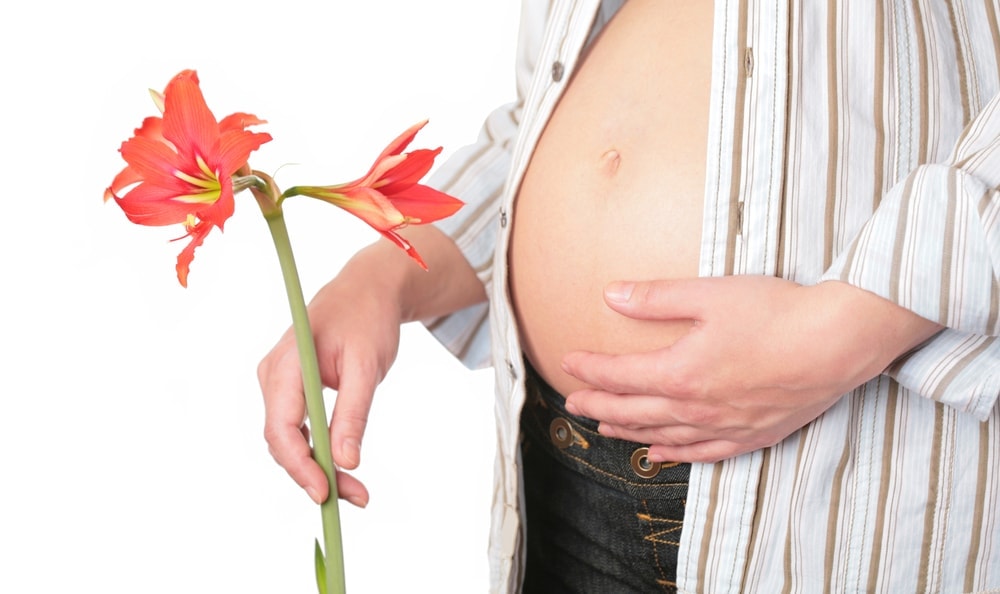16 Weeks Pregnant
Only four weeks until the half-way mark! Here is a list of pointers to help you through pregnancy week 16. Get the Fetal Life App for Apple and Android endorsed by the American Pregnancy Association.
What changes are occurring with your body at 16 weeks pregnant?
Your uterus is continuing to grow and weighs approximately 8 ½ ounces (¼ kg). Your placenta is also growing, and your body is producing an increased amount of amniotic fluid that helps protect your baby during your pregnancy. Right now your body has about 7 ½ ounces (.2 kg) of amniotic fluid surrounding your baby. When you are pregnant, your blood volume increases by 30- 50%, resulting in more blood circulation through your body.* This increase in blood circulation causes your face to be brighter. Your body is also producing hormones that cause your oil glands to work in over-drive, leaving your face shiny. Both of these things can result in a “pregnancy glow.” If your skin becomes too oily, you can use an oil-free cleanser to clean your face. Other than that, just smile and enjoy your glow!
How big is your baby?
By the end of week 16, your baby is approximately 5.31 inches (13.5 cm) (CRL) and weighs 2 ½ ounces (.07 kg).*
What is happening with your baby?
Your baby is preparing for a growth spurt over the next several weeks. Your baby’s head is more erect now than it has been in previous weeks. The ears and eyes are also situated in their final positions, giving your baby a more identifiable appearance. Several of the more complicated body systems are also beginning to function, including your baby’s urinary and circulatory systems. Your baby’s heart pumps around 25 quarts of blood per day. However, by week 40 this amount will increase to 1,900 quarts per day!
What should you plan for pregnancy week 16?
Your next prenatal appointment may be in the next several weeks. During this visit, your health care provider may recommend some screens or tests including:
Your healthcare provider may also want to discuss the following:
- Round ligament symptoms
- Preterm labor
- Choosing a pediatrician
- Prenatal classes
- Childbirth classes
Tips for making your pregnancy better
You can begin to feel your baby’s first movements between 16 and 20 weeks. If this is your first pregnancy, it may be closer to 20 weeks before you feel your baby move. These first movements are often described as feeling like gas bubbles or a fluttering sensation. You may have felt this and not even realized it was your baby. The amount of movement and when it occurs can vary from one pregnancy to the next, so it is not helpful to evaluate your current pregnancy experience based on what you experienced in previous pregnancies. Sleeping on your side becomes more important at this time; many health care providers recommend that you should not sleep on your back once you reach 16 weeks. This is why it is best to use pillows to support your body to make sure you stay on your side during the night.
Tips for mom’s partner
Mom will begin feeling the baby’s first movements sometime during the next several weeks. This can increase the bonding experience between mother and child, but sometimes the partner can feel left out. Eventually, you will also be able to feel the baby move, but until then you can bond with your baby by talking to him/her on a daily basis. If you are not sure what to say, you can read or sing to your baby.
Want to Know More?
- Nordic Naturals: The official Omega 3 of the American Pregnancy Association
- Affordable Cord Care: Everyone should have the right to affordable cord blood storage
- Nighttime Ice Cream: Specially formulated to be pregnancy friendly
Compiled using information from the following sources:
1. Mayo Clinic Staff. (2014, July 11). Heart conditions and pregnancy: Know the risks.
https://www.mayoclinic.org/healthy-lifestyle/pregnancy-week-by-week/in-depth/pregnancy/art-20045977






